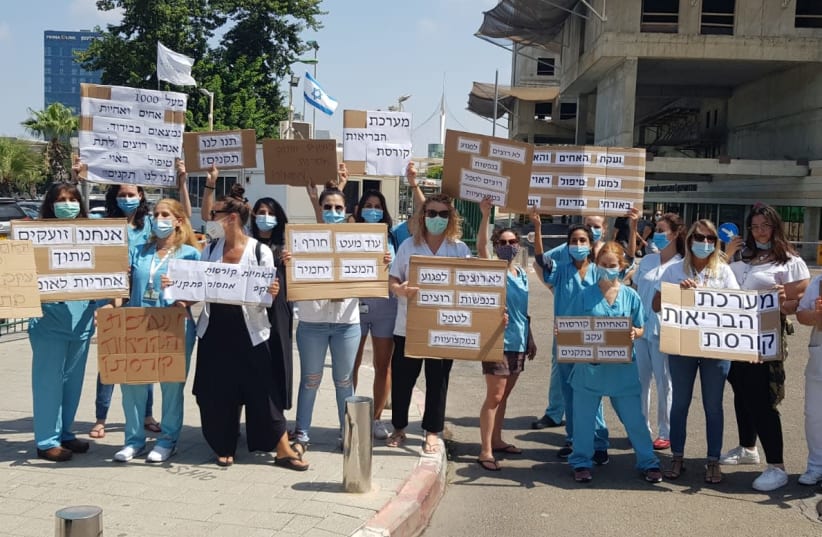The Health and Finance ministries agreed to provide the health system with the manpower it was requesting and the nurses agreed to call off their strike on Monday.Minister of Health Yuli Edelstein and Finance Minister Israel Katz announced that they had agreed to fund 2,000 new nurses – 1,600 to hospitals and 400 to the health funds – 400 doctors and 700 administrative assistants and support staff. Some of the new positions will be rolled out in stages.The move was made after the Finance Ministry and the National Association of Nurses failed to reach a consensus, and nurses who work at all hospitals, Meuhedet and Clalit health funds, student health services and Tipat Halav family health centers began to strike. All day, nurses worked according to a reduced schedule like the way they operate on Saturdays, except in emergency rooms and in coronavirus wards and testing centers, which remained fully staffed.“The nursing system is collapsing,” said union head Ilana Cohen in an interview on Reshet Bet on Monday. “Forty coronavirus wards were opened. Where do you think they took the shifts from?”The Medical Interns Union joined the strike for two hours on Monday, too.“The health system has been starved for years,” said Edelstein Monday evening. “We worked quickly to correct the deep problems in the system and significantly strengthen the ability to handle coronavirus. We determined that the health system is above all!”Late Monday night, the union agreed to end their strike and said they would resume work on Tuesday.Earlier in the day, the nurses argued that “impossible loads are being placed on the nurses’ shoulders,” Cohen told KAN, and demanded those positions. The argument was that if manpower is not increased, come winter, the health system will collapse.Israel has nearly the lowest number of nurses per capita compared with other OECD countries and nearly the lowest number of nursing-school graduates.“This is not your battle, we are all in this together,” said Prof. Yitshak Kreiss, director-general of Sheba Medical Center at Tel Hashomer during his own hospital’s protest Monday.Kreiss argued that he has watched nurses in the field for 30 years and every time he has thought that they cannot be more dedicated or professional, they prove him wrong.“I have a message for the decision-makers,” Kreiss stressed, “This is not about benefits… This is a battle for the face of the State of Israel… This is not a battle for the health system but for the character of our society.”
Nurses end nationwide strike
Israel’s health system to receive 2,000 new nurses, 400 doctors.
